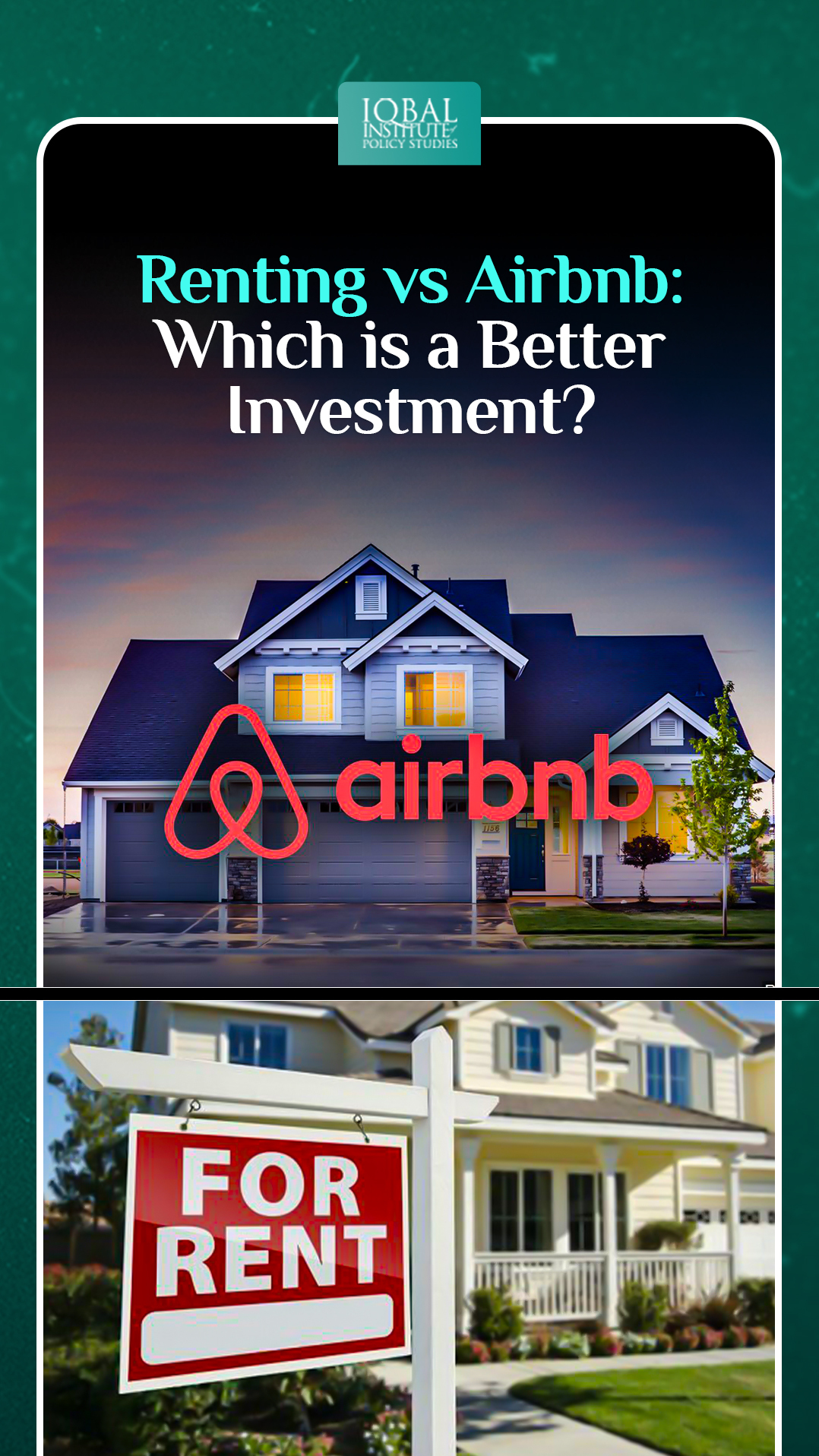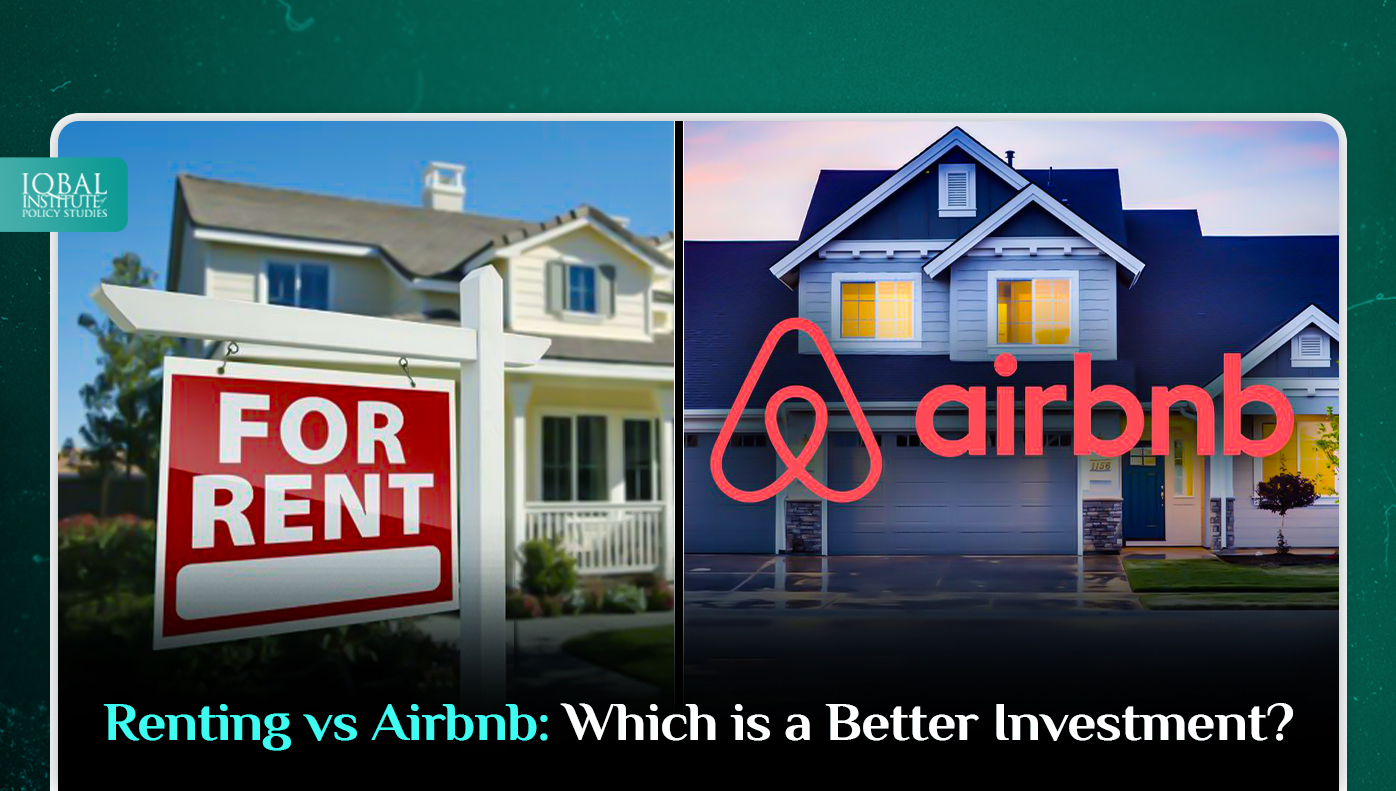Investing in rental property is a popular strategy to generate additional income. Long-term traditional renting is considered a profitable business among investors. But renting out a property for investment and long-term capital appreciation has ups and downs. Apart from conventional renting, there are many other options for investment. However, one of the main discussion points between real estate investors is whether one should list their property on Airbnb or choose traditional long-term renting. Which more lucrative strategy can generate a high Return On Investment (ROI)?
In this article, we will compare both Airbnb and traditional renting to assist you in discovering the pros and cons of each strategy.
Airbnb vs Renting
Airbnb is an online marketplace and hospitality service that allows investors to rent out their properties or spare rooms to travellers looking for accommodation. The name “Airbnb” stands for “air bed and breakfast,” originally reflecting its early focus on offering air mattresses for rent in addition to traditional bed and breakfast accommodations.
Renting is a common practice of acquiring a house in exchange for rent for a long period. The property owner becomes the landlord, and the tenant becomes the renter.
Ultimately, Airbnb is an online platform that helps homeowners list their properties and rent them out short-term to travellers. Airbnb charges a fee but markets Airbnb listings and takes care of the payments in return. However, in traditional renting, investors must make their property available to be rented out long-term for at least six months. In that case, the property owners will promote their property and collect the monthly payments.
Rental Income
Renting out property offers stable, long-term rental income. However, the area’s income potential may be limited by location, demand, and rental rates. Airbnb rentals can generate higher income per night, especially in popular tourist destinations or peak seasons.
Occupancy and Flexibility
Traditional rentals often involve longer-term leases, providing stable occupancy and reduced turnover. On the other hand, Airbnb rentals can have higher turnover due to shorter stays. This can be advantageous for flexibility but may require more effort to manage bookings, check-ins, and cleaning.
Expenses and Responsibilities
Both rental and Airbnb investments come with expenses and responsibilities. Renting out a property involves standard maintenance costs, property taxes, and potentially utility payments, which are generally the tenant’s responsibility. Additional costs such as furnishing, cleaning, marketing, and booking platform fees may exist for Airbnb. Managing an Airbnb property may also require more hands-on involvement or the use of property management services.
Regulations and Legal Considerations
It’s important to be aware of local regulations and legal requirements for both traditional rentals and Airbnb. Some cities or homeowner associations have specific rules or restrictions on short-term rentals. Ensure you comply with local laws to avoid potential fines or legal issues.
Market Demand and Location
Consider the demand for traditional rentals versus Airbnb in your location. If you’re in a highly sought-after tourist destination or an area with significant short-term rental demand, Airbnb could be a more lucrative option. However, traditional renting may be a better fit if the market favours long-term rentals and there’s a stable tenant demand.
Risk Tolerance and Personal Preference
Assess your risk tolerance and personal preferences as an investor. Traditional rentals may be suitable if you prefer a more hands-off, predictable investment with lower risk. On the other hand, if you enjoy the dynamic nature of short-term rentals, are willing to manage the associated tasks, and can adapt to changing market conditions, Airbnb can be a rewarding investment.
Pros and Cons of Airbnb and Renting
Renting and Airbnb are popular options for real estate investors looking to generate income from their properties. Here are some pros and cons of each option:
Pros of Renting
Consistent income
Renting a property typically provides a stable and predictable monthly income stream.
Long-term tenants
Rental properties often attract long-term tenants, reducing turnover and vacancy rates.
Less management
With long-term rentals, the management and maintenance responsibilities are usually lower than short-term rentals.
Lower legal and regulatory hurdles
Renting a property involves fewer legal and regulatory requirements than short-term rentals.
Cons
Lower rental rates
Rental properties often command lower rental rates compared to short-term rentals per night.
Limited flexibility
With long-term rentals, you have less flexibility in using the property for personal use or making changes to the rental terms.
Higher vacancy risk
There is a risk of extended periods of vacancy between tenants, which can impact cash flow.
Property damage
Long-term tenants may cause more property wear and tear than short-term guests.
Pros of Airbnb
Higher rental rates
Airbnb rentals often command higher rates per night, especially in popular tourist destinations or during peak seasons.
Flexibility
As an Airbnb host, you have the flexibility to use the property for personal use whenever you want.
Short-term rentals
Airbnb allows you to rent out your property for shorter durations, enabling you to generate income during high-demand periods.
Potential for higher occupancy
With short-term rentals, you have the potential for higher occupancy rates, especially in popular locations.
Cons
Higher management and maintenance
Short-term rentals require more active management, including check-ins, cleaning, and responding to guest inquiries and issues.
More legal and regulatory requirements
Many cities and municipalities have specific regulations and restrictions on short-term rentals, which can involve additional paperwork and compliance measures.
Seasonal fluctuations
Depending on the location, short-term rentals may experience significant changes in demand during off-peak seasons.
Additional costs
Airbnb rentals often involve additional costs, such as professional cleaning services, furnishing the property, and providing amenities to attract guests.
Conclusion
Regarding Airbnb and renting, it is hard to title one as the best investment choice. Both have pros and cons, like Airbnb can generate higher rental income. Though, this does come at a cost. Hosts must ensure their investment property boasts a great location, which might mean more upfront costs. In this regard, an investment strategy must depend on the investor’s goal, market conditions, and personal preferences. Investors should conduct thorough research, evaluate the financial situation, and consult with a real estate professional or financial advisor to make an informed decision.



Leave a Reply